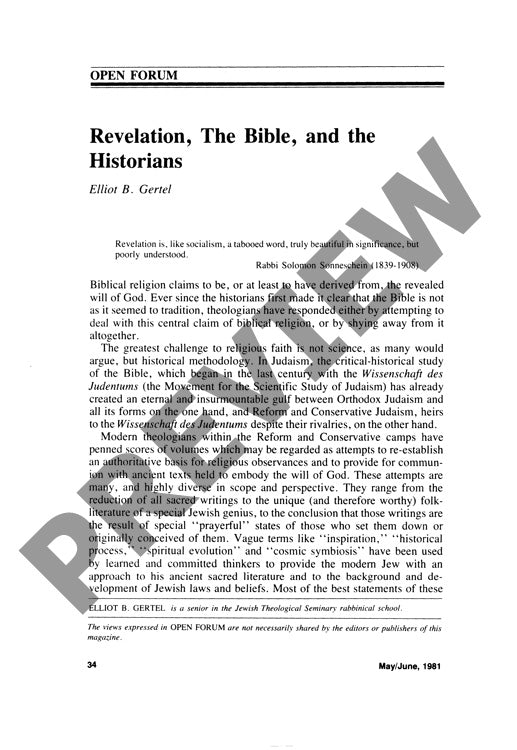Revelation the Bible and the Historians
Couldn't load pickup availability
Historical criticism of biblical texts need not undermine faith in divine revelation - in fact, it can deepen our understanding of how God communicated with ancient prophets. Through comparative analysis of major theological scholars including Kaufmann, Mowinckel, Porteous, and Heschel, a constructive dialogue emerges between modern critical methods and traditional beliefs about prophetic revelation. While historical-critical approaches have created tensions within Judaism, particularly between Orthodox and Reform/Conservative movements, they simultaneously strip away later theological distortions and illuminate the original meanings of biblical texts. The analysis resolves apparent contradictions between claims of revelation's uniqueness and evidence that biblical authors borrowed literary elements from other ancient Near Eastern sources. Drawing primarily on Heschel's work, the research demonstrates that the biblical concept of the "Word of God" as direct divine communication to prophets remains theologically viable under rigorous historical scrutiny. Modern theological approaches can embrace rather than avoid the biblical understanding of prophecy as divine intrusion into human history, wherein prophets serve as receptors of God's word while maintaining their human dignity and interpretive role. This synthesis offers a framework for contemporary religious thought that honors both critical scholarship and traditional revelation claims.

More Information
-
Physical Description
-
Publication Information
Published 1981
ISBN
-
Publication Credits
Elliot Gertel

